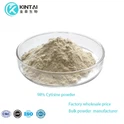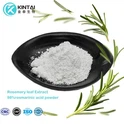Pennywort extract, derived from the pennywort plant (Centella asiatica), is a versatile botanical that has garnered significant attention for its potential health benefits. This unassuming herb, native to regions of Asia, has been valued for centuries in traditional medicine systems, but recent scientific research has shed light on its remarkable properties. Exploring the uses and potential advantages of pennywort extract is a fascinating journey that intertwines ancient wisdom with modern scientific insights.
Overview of Pennywort (Centella asiatica)
all, herbaceous plant belonging to the Apiaceae family. It grows abundantly in tropical and subtropical regions, thriving in moist environments. The plant is characterized by its distinctive, round leaves with a central depression, which resemble coins – hence its colloquial name, "pennywort."
Pennywort has held a revered place in traditional systems of medicine, particularly in Ayurveda and traditional Chinese medicine. Its use can be traced back thousands of years, with records indicating its employment for a range of ailments, including wound healing, revitalizing the body, and enhancing cognitive function. In Ayurvedic medicine, pennywort is known as "Mandukaparni" and is considered a "medhya rasayana," meaning it enhances cognitive abilities and promotes longevity.
Nutritional Composition and Active Compounds
Pennywort extract is a rich source of essential nutrients and bioactive compounds that contribute to its therapeutic potential. It contains a significant amount of vitamins, minerals, amino acids, and phytochemicals, including:
- Vitamin C, a powerful antioxidant that supports immune function and skin health
- Vitamin A, essential for skin health, vision, and cell growth
- Zinc, a mineral crucial for wound healing, immune function, and protein synthesis
- Amino acids, such as aspartic acid and glutamic acid, which support cognitive function and neurotransmitter production
However, the true magic of pennywort extract lies in its unique blend of bioactive compounds, particularly the triterpenoids. These compounds, including asiatic acid, madecassic acid, and asiaticoside, are believed to be responsible for the plant's remarkable medicinal properties. Triterpenoids have been found to possess potent antioxidant, anti-inflammatory, and neuroprotective effects, among other beneficial properties.
Health Benefits and Therapeutic Uses
Cognitive Enhancement and Brain Health:
1. Evidence supporting pennywort extract's role in improving cognitive function:
Research has demonstrated that pennywort extract may enhance cognitive abilities, including memory, attention, and overall brain function. Studies have shown its potential in mitigating age-related cognitive decline and supporting brain health. The triterpenoids present in pennywort extract are thought to contribute to these effects by reducing oxidative stress, inflammation, and promoting neuronal growth and connectivity.
2. Potential applications in memory enhancement and neuroprotection:
The triterpenoids present in pennywort extract have been found to exhibit neuroprotective effects, shielding brain cells from oxidative stress and inflammation. This property holds promise for applications in managing neurodegenerative conditions, such as Alzheimer's disease and Parkinson's disease. Additionally, preliminary research suggests that pennywort extract may improve memory and cognitive function in individuals with mild cognitive impairment.
Skin Health and Wound Healing:
1. Benefits for promoting collagen production and skin regeneration:
Pennywort extract has been traditionally used for its wound-healing abilities, and scientific research supports its efficacy. It stimulates the production of collagen, a structural protein essential for skin integrity and regeneration, making it a valuable ingredient in skincare products. The triterpenoids in pennywort extract are thought to contribute to this effect by promoting fibroblast proliferation and collagen synthesis.
2. Utilization in skincare products for treating wounds, scars, and stretch marks:
The extract's ability to promote collagen synthesis and tissue repair has made it a popular ingredient in creams and ointments designed to treat wounds, scars, and stretch marks. Its anti-inflammatory and antioxidant properties further enhance its effectiveness in promoting skin health and reducing the appearance of blemishes and discoloration.
Other Potential Benefits:
In addition to its cognitive and skin-related benefits, pennywort extract has been studied for its potential in other areas, including:
- Anti-inflammatory effects: The triterpenoids in pennywort extract have been found to exhibit potent anti-inflammatory properties, making it a potential therapeutic option for conditions like rheumatoid arthritis, inflammatory bowel disease, and other inflammatory disorders.
- Antimicrobial and anticancer activities: Preliminary research has suggested that pennywort extract and its compounds may have antimicrobial and anticancer properties, although more research is needed to fully understand these potential applications.
- Cardiovascular health: Some studies have indicated that pennywort extract may have beneficial effects on cardiovascular health, such as improving blood circulation, reducing blood pressure, and supporting heart function, but more research is needed to confirm these findings.
Scientific Research and Clinical Evidence
Numerous scientific studies have validated the efficacy of pennywort extract and its active compounds. In vitro and animal studies have demonstrated its potential in various therapeutic areas, including:
- Cognitive enhancement and neuroprotection
- Wound healing and tissue regeneration
- Anti-inflammatory and antioxidant effects
- Antimicrobial and anticancer activities
Additionally, clinical trials have been conducted to explore the therapeutic potential of pennywort extract in various health conditions. For instance, a study published in the Journal of Ethnopharmacology found that supplementation with pennywort extract improved cognitive function and working memory in healthy adults. Another clinical trial published in the Journal of Cosmetic Dermatology demonstrated that a topical formulation containing pennywort extract significantly improved the appearance of stretch marks and skin elasticity.
However, it is important to note that while the research is promising, more large-scale clinical trials are needed to fully establish the safety and efficacy of pennywort extract for various therapeutic applications.
Conclusion
Pennywort extract is a remarkable botanical with a multitude of potential benefits for human health. Its rich history in traditional medicine systems, combined with modern scientific research, has unveiled its potential in promoting cognitive function, enhancing skin health, and supporting wound healing processes, among other potential applications.
As researchers continue to explore the therapeutic applications of pennywort extract, it becomes increasingly evident that this unassuming plant holds immense promise. Incorporating pennywort extract into daily wellness routines or skincare regimens may offer a natural and holistic approach to supporting overall well-being.
However, it is essential to consult with healthcare professionals before incorporating any new supplement or botanical into your routine, especially if you have pre-existing health conditions or are taking medications. With proper guidance and consideration, pennywort extract may emerge as a valuable addition to your health and wellness practices, providing a natural and potentially effective way to support cognitive function, skin health, and overall well-being.
Our Pennywort Extract Bulk has received unanimous praise from customers. If you would like to know more about this product, please feel free to contact Sales@Kintaibio.Com.
References:
1. Gohil, K. J., Patel, J. A., & Gajjar, A. K. (2010). Pharmacological review on Centella asiatica: A potential herbal cure-all. Indian Journal of Pharmaceutical Sciences, 72(5), 546-556.
2. Bylka, W., Znajdek-Awizen, P., Studzinska-Sroka, E., & Brzezinska, M. (2014). Centella asiatica in cosmetology. Postepy Dermatologii i Alergologii, 31(1), 46-49.
3. Orhan, I. E. (2012). Centella asiatica (L.) Urban: From traditional medicine to modern medicine with neuroprotective potential. Evidence-Based Complementary and Alternative Medicine, 2012, 946259.
4. Hashim, P. (2011). Centella asiatica in food and beverage applications and its potential antioxidant and neuroprotective effect. International Food Research Journal, 18(4), 1215-1222.
5. Chandrika, U. G., & Basnayake, S. M. S. M. (2009). Evaluation of the wound healing potential of Centella asiatica. Journal of Ethnopharmacology, 125(2), 238-244.
6. Soumyanath, A., Zhong, Y. P., Gold, S. A., Goldman, X., Lu, Y., Goren, J. L., ... & Cohen, J. D. (2005). Centella asiatica accelerates nerve regeneration upon oral administration and contains multiple fractions increasing neurite elongation in vitro. Journal of Pharmaceutical Sciences, 94(12), 2720-2729.
7. Wanakhachornkrai, O., Pongrakhananon, V., Chunhacha, P., Wanun, T., Sritongrat, P., & Chanvorachote, P. (2013). Neuritogenic effect of Centella asiatica ECa233 on human neuroblastoma cells. BMC Complementary and Alternative Medicine, 13, 204.
8. Mato, L., Wattanathorn, J., Muchimapura, S., Tongun, T., Piyawatkul, N., Yimtae, K., ... & Singrichanalai, S. (2011). Centella asiatica improves physical performance and health-related quality of life in healthy elderly volunteer. Evidence-Based Complementary and Alternative Medicine, 2011, 579467.







